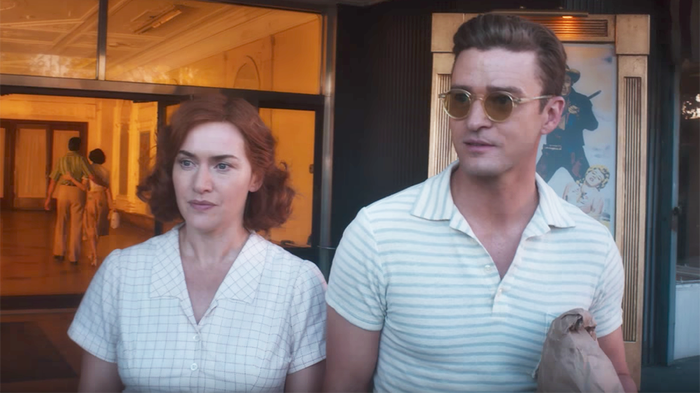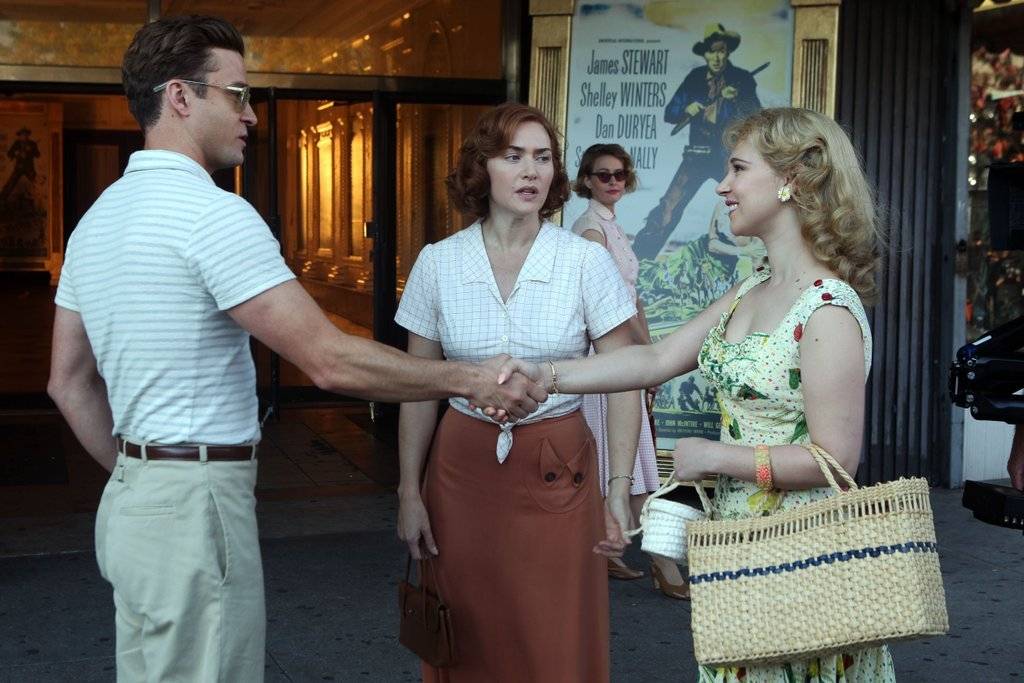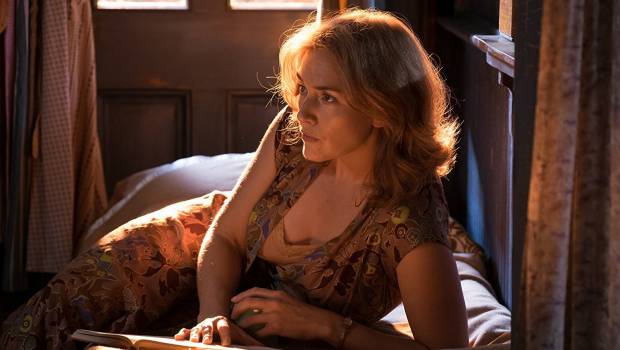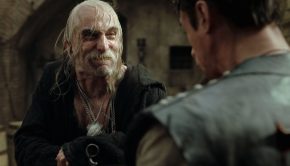Wonder Wheel – Film Review
Reviewed by Damien Straker on the 7th of December 2017
eOne presents a film by Woody Allen
Produced by Letty Aronson, Edward Walson and Erika Aronson
Written by Woody Allen
Starring Kate Winslet, Jim Belushi, Juno Temple and Justin Timberlake
Cinematography Vittorio Storaro
Edited by Alisa Lepselter
Rating: M
Running Time: 101 minutes
Release Date: the 7th December 2017
Woody Allen has had one of the most recognised and distinguished careers in the history of Hollywood. His greatness, particularly as a screenwriter, is also the very reason why he needs to quickly bring an end to his filmography. He has released a film every year for more than thirty years but in doing so he’s failed to deliver any level of consistency to his recent work.
Great actors are constantly willing to work with Allen who in return merely offers them half-baked scripts, old ideas and rehashed plot lines. Some of these films have been serviceable, a few were great, and others have been a terrible waste of time. What exactly is Allen, who is eighty-two, trying to prove by clinging on each year when he has said himself that he does not want to work long hours on a film set? To whom does he feel obliged to please by continuing this charade? Its certainly not for the money because many of these films are only small box office stagers, unless they can muster a significant amount of publicity.
Perhaps as part of his own neurosis he feels obliged to compulsively follow the same creative routine of developing and releasing a new film every year. This might account for why he recycles many of the same templates, ideas and character types he has expended for years. Surely someone with his penchant for creativity could still create something unique that can exist within the stylistic lines of a Woody Allen movie—only a few years ago, Midnight in Paris (2011) proved this spectacularly. Sadly, Wonder Wheel is not the film to break Allen out of this late creative rut. Some might argue that this film was made with a clear albeit dubious purpose: to resolve a personal argument that is clumsily mirrored in this film.
Wonder Wheel is about a family in crisis, and unlike several recent films by Allen, it is attempting to dissect this narrative situation as a straight dramatic work rather than an awkward balance of comedic and dramatic tones. The star of the film is Kate Winslet who plays Ginny, a mother struggling to hold her family together while living on Coney Island in the 1950s. Her husband Humpty (Jim Belushi) is an unpleasant slob, complete with a wife-beater singlet, her step daughter Carolina (Juno Temple) is being pursued by gangsters, and her son Richie (Jack Gore), from her first marriage, is a young boy who likes to start fires. Ginny is invigorated once she starts secretly romancing Mickey, a lifeguard (Justin Timberlake) who served in the war. However, she is dismayed to discover that he is also interested in dating Carolina, who is unaware of her step mother’s affair.

While the film has a broadly applicable setup that a wide audience could relate towards, a troubled family unit, the treatment of the setup is too old fashioned, stage bound, and ultimately boring. Wonder Wheel fails to unearth genuine surprises because too many elements are either recycled or incomplete. One example of this is the setup of Mickey dating both women. The dramatic construct is lazy and humourless; it was also recently employed more effectively in Allen’s comedy Café Society (2016). Similarly, the subplot about Richie lighting fires completely floats adrift from a resolution in the screenplay, making it seem pointless.
Allen also struggles to keep in touch with the cinematic landscape because Wonder Wheel too closely resembles the form of a stage play rather than a film. Every emotion or internal thought belonging to the characters is expressed through the dialogue; the long verbose monologues are comparable to how the characters in a play would express themselves through a soliloquy. These conversations are often filmed in long unbroken close-ups, which further alludes to the overly theatrical staging. Another theatrical decision that feels misplaced is having Mickey talk to the camera, which mischaracterises him as being the film’s central hero. Some of the dialogue fails to free itself from Allen’s tired cultural staples, such as when Mickey starts talking about the human condition—an example of Allen recycling his philosophical ruminations whether they fit the characters appropriately or not.

Allen’s over reliance on dialogue to advance the plot is problematically evident in the film’s end climax. The end of the story, including the fate of one of the major characters, is kept off-camera and then announced by someone else through a verbal accusation, which immediately lessens the impact. The climax is meant to inject a painful dose of tragedy, revealing the story to be a fatal glimpse of jealousy between two women of different ages. However, it unintentionally reveals Allen’s reluctance to relinquish Blue Jasmine (2013), one of his few major works in recent times, such is the inseparability of these two films and their end points. Kate Winslet is the film’s best asset, proving again she is a dedicated mimicry of Allen’s archetype of frantic energy, panic attacks, headaches and nausea. However, the performance doesn’t land a strong emotional hook because Winslet fails to escape Cate Blanchett’s shadow, given the unfortunately similarities between the characters and acting styles.
Wonder Wheel also fails as an autobiographical piece of therapy for Allen despite the parallels between the film’s relationships and his own life. The comparison would be even more uncomfortable if the film was a nuanced drama. Instead, Allen has created a hodgepodge of styles and movie archetypes that feel tired and grey. It’s a movie about family, a crisis of personal angst, a weird romance, partly autobiographical, but also a half-baked gangster movie too. The problem child and the overbearing brutish father who is gonna “smack ‘em around a bit” seem like tired stereotypes from other movies, and this is compounded by the over-familiarity of Winslet’s performance. Wonder Wheel would be instantly forgettable if it weren’t for how hard she tries to illustrate her character’s struggles against the push of the film’s overly theatrical stylisations. If Woody Allen has forgotten the basic cinematic screenwriting rules, then it’s time to close the book on a once distinguished career and a reputation that is quickly waning.
Summary: Sadly, Wonder Wheel is not the film to break Allen out of this late creative rut.







